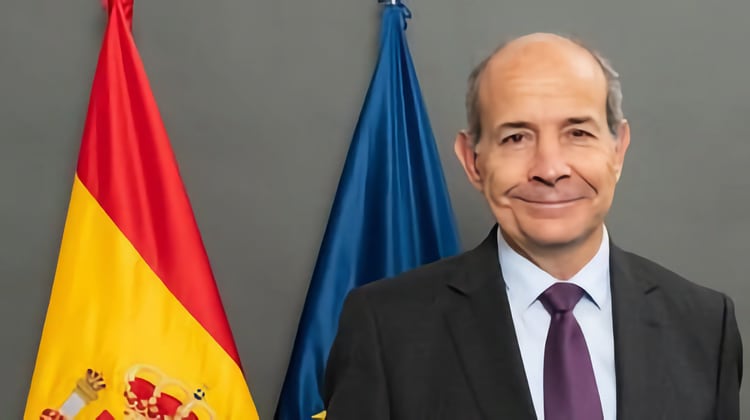Luis Ayllón
Spain’s current ambassador to the Russian Federation, Marcos Gómez, will be appointed Spain’s permanent representative to the United Nations and Other International Organisations in Geneva, reliable sources have told The Diplomat.
His appointment will not take place until the appointment of his replacement in Moscow, who will be Ricardo Martínez, as reported by this website. It may be a few more weeks before the changeover takes place, as it is not foreseeable that the Russian authorities will immediately give their approval to the new ambassador.
Diplomatic circles estimate that Vladimir Putin’s government will apply reciprocity to the actions of the Spanish government, which took four months to give the plácet to the current ambassador in Madrid, Yuri Klimenko. Given that Spain requested authorisation to appoint Ricardo Martínez as ambassador in mid-February, Moscow’s approval might not come until June.
Marcos Gómez will occupy the post in Geneva that will be vacated by Aurora Díaz-Rato, who will go to Tangiers as consul general. Díaz-Rato is due to join the consulate soon, after her election to the post provoked numerous comments among diplomats, because she is due to retire before the mandatory three-year term of office is up.
The ambassador to Moscow was appointed to the post in October 2021, after the Minister of Foreign Affairs, José Manuel Albares, who had replaced Arancha González Laya as head of the Palace of Santa Cruz, decided to withdraw the request for Camilo Villarino, who was then under investigation in connection with the entry into Spain of the leader of the Polisario Front, Brahim Ghali, and who today, after being exonerated of any responsibility, is the head of the Household of His Majesty the King.
Marcos Gómez entered the diplomatic career in 1990 as number one in his class, and since then he has held various posts both abroad and in the Ministry of Foreign Affairs and the Presidency of the Government, where he was an advisor in the International Department. Between 2007 and 2011 he was ambassador to New Zealand, and after being director general of the United Nations, International Organisations and Human Rights, between 2018 and 2020, he was appointed ambassador to Colombia, where he stayed until his transfer to Moscow.
Relations between Spain and Russia at the level of diplomatic representations have not been free of tensions since the Russian invasion of Ukraine. In April 2022, Spain, in line with other EU countries, expelled 27 members of the Russian Embassy in Madrid, to which Putin responded with the same measure by expelling the same number of members of the Spanish Mission in Moscow.
Since then, the Spanish government, in addition to taking four months to give the new Russian ambassador the plácet, has rejected a dozen requests for accreditation of new members for the embassy. Russia’s response came in mid-February, when, as The Diplomat reported, the Russian government denied a visa to the diplomat Antonio Ramos, who had been appointed consul general in Moscow, and so far there seems to be no sign of a change of attitude on the part of the Russian authorities.
Spain has also already chosen Javier Echeandía, who will be the embassy’s ‘number two’, to replace Agustín Núñez in August, if Russia has granted him a visa to take up the post by then.







